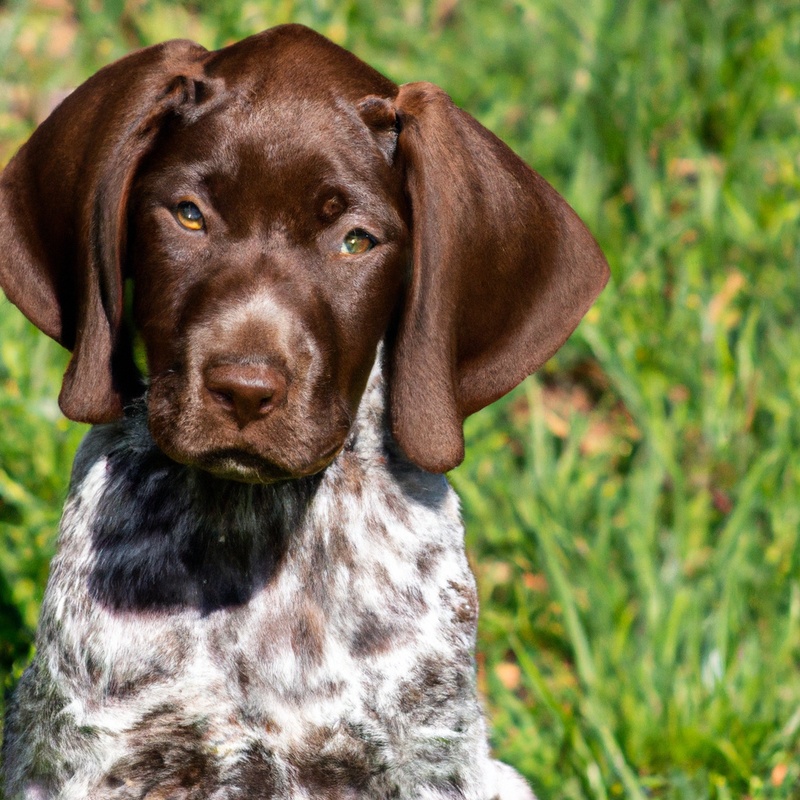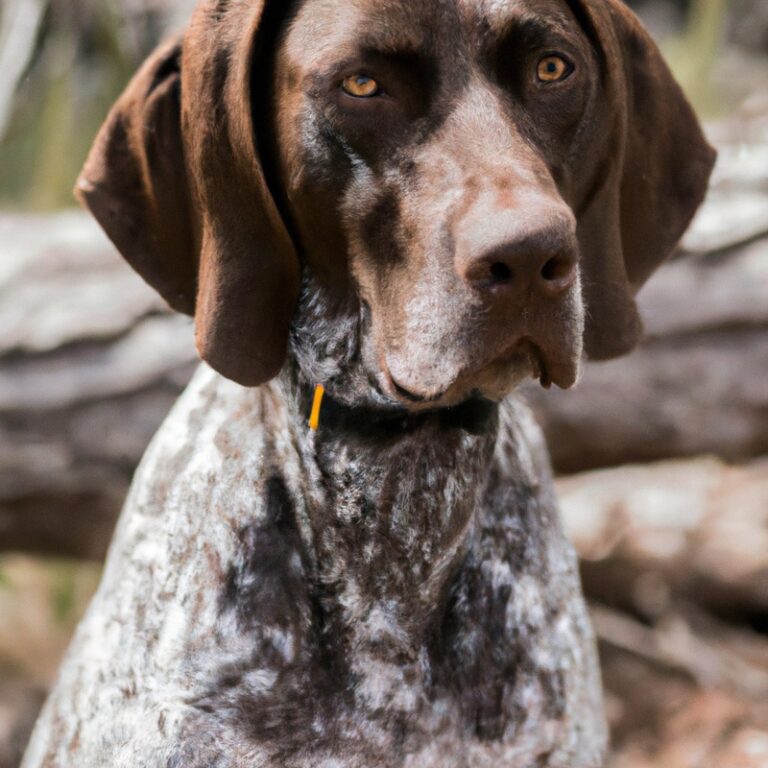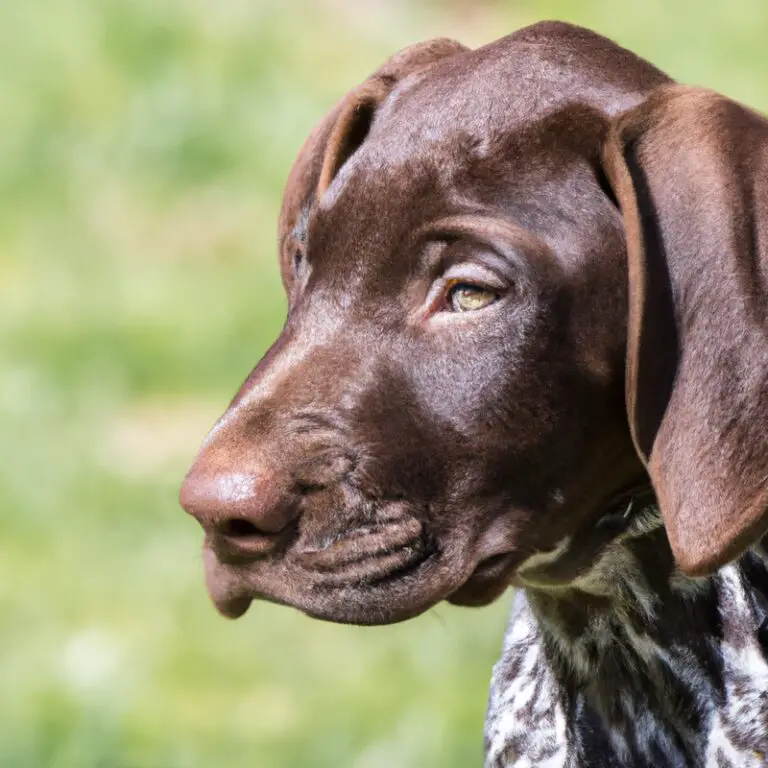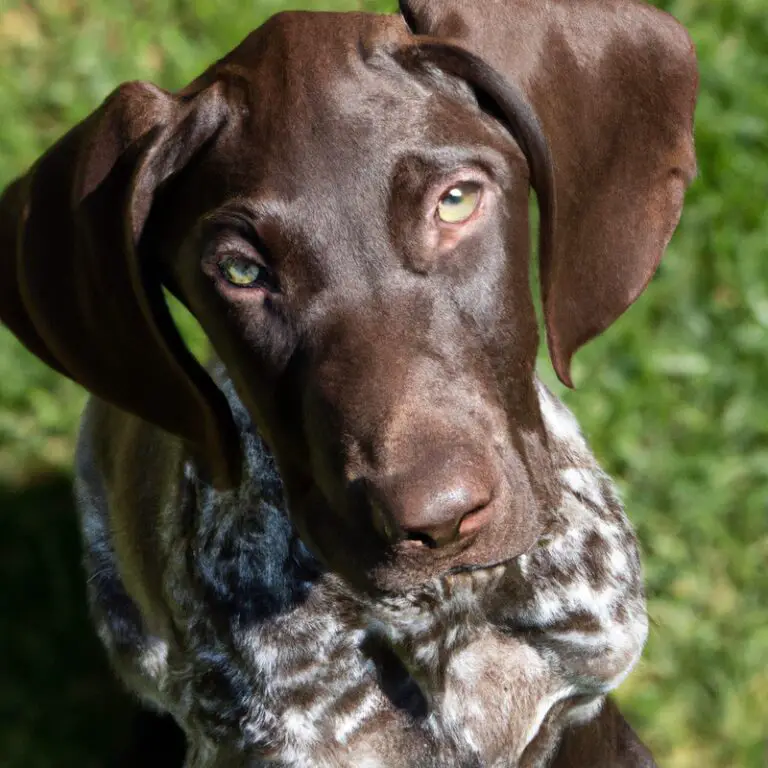Are German Shorthaired Pointers Good With Other Dogs Of The Same Gender?
Key Takeaways:
- German Shorthaired Pointers may be prone to same-gender aggression with other dogs.
- Early socialization and proper training are essential to promote positive interactions with dogs of the same gender.
- Individual temperament and personality play a significant role in determining how well German Shorthaired Pointers get along with dogs of the same sex.
- Supervision and gradually introducing them in controlled environments can help mitigate any potential conflicts between German Shorthaired Pointers and dogs of the same gender.
Are German Shorthaired Pointers good with other dogs of the same gender? It’s a question that many dog owners ask when considering adding one of these energetic and affectionate pups to their family.
As an expert dog trainer with years of experience, I understand the importance of finding the right balance between a dog’s breed and their compatibility with others.
In this article, I’ll dive into the temperament of German Shorthaired Pointers, the benefits of socialization, and provide practical tips on introducing and managing interactions between German Shorthaired Pointers and dogs of the same gender. So, if you’re curious about whether these incredible canines can find harmony with others, keep reading!
| German Shorthaired Pointers (GSPs) | |
| Temperament | Friendly and sociable |
| Socialization | Require early socialization to other dogs |
| Same-Gender Interactions | Can have potential dominance issues with same-gender dogs |
| Training | Respond well to positive reinforcement training |
| Considerations |
|
German Shorthaired Pointers and Their Temperament
Understanding the Temperament of German Shorthaired Pointers
Understanding the Temperament of German Shorthaired Pointers German Shorthaired Pointers, or GSPs for short, are known for their friendly and outgoing nature. They are generally very sociable and enjoy being around people and other animals.
GSPs are often described as being energetic and active, with a strong desire to be involved in various activities.
They have a keen sense of smell and are often used as hunting dogs. One important aspect of their temperament is their intelligence.
GSPs are highly intelligent and are quick learners.
This means that they can be easily trained and are often eager to please their owners. They thrive in environments that provide mental stimulation and require regular exercise to keep them physically and mentally fit.
Another aspect of their temperament is their loyalty and affection towards their family.
GSPs are known to be very devoted and loving towards their owners. They enjoy being part of the family and may become anxious or unhappy if left alone for long periods of time.
It is important to give them plenty of attention and companionship to keep them happy.
GSPs are also known for their confident and independent nature. While they are generally friendly towards other dogs and animals, they can sometimes be dominant or assertive, especially with dogs of the same gender.
Proper socialization and training from a young age can help prevent any potential issues with aggression or territorial behavior.
Common Traits and Behaviors of German Shorthaired Pointers
German Shorthaired Pointers have a number of common traits and behaviors that are worth knowing if you’re considering getting one as a pet. First and foremost, they are highly energetic and require plenty of exercise to stay happy and healthy.
They love physical activity and make great running or hiking companions.
Additionally, German Shorthaired Pointers are known for their intelligence and trainability. They are quick learners and thrive when given mental stimulation and training tasks.
This makes them ideal for dog sports and activities like obedience, agility, and tracking.
These dogs are also very social and generally get along well with people and other dogs. They tend to be friendly and outgoing, making them good family pets.
However, it’s important to properly socialize them from a young age to ensure they develop good manners and behavior.
Another characteristic of German Shorthaired Pointers is their strong prey drive. They have a natural instinct to chase, so it’s important to keep them on a leash or in a securely fenced area when outside.
This can help prevent them from taking off after small animals.
Lastly, it’s worth noting that German Shorthaired Pointers can be prone to separation anxiety if left alone for long periods of time. They thrive on human companionship and can become anxious or destructive if left alone for too long.
They do best in homes where someone is able to spend time with them on a regular basis.
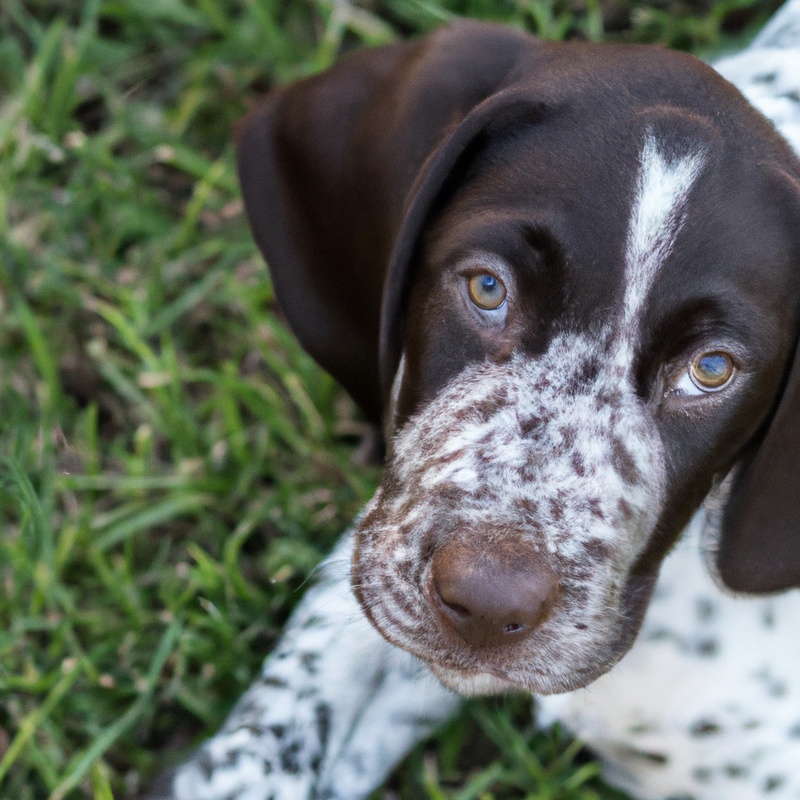
The Importance of Socialization for German Shorthaired Pointers
Socializing German Shorthaired Pointers
When it comes to socializing German Shorthaired Pointers, it is crucial to start early. By introducing them to different environments, people, and other dogs from a young age, you can help them develop proper social skills.
It is important to expose them to a variety of experiences and ensure positive interactions.
Regular socialization can help prevent behavior problems and ensure that your German Shorthaired Pointer grows up to be a friendly and well-adjusted companion.
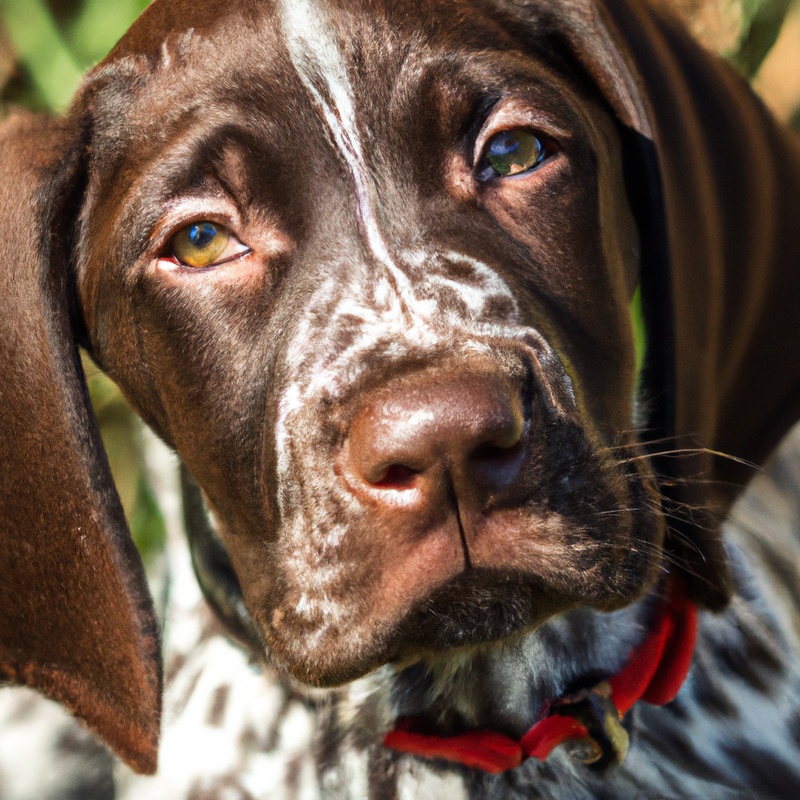
Benefits of Early and Continued Socialization
Benefits of early and continued socialization for German Shorthaired Pointers are numerous. Firstly, it helps them develop positive behaviors and proper social skills.
By exposing them to different environments, people, and other animals from an early age, they become more adaptable and confident in various situations.
It also reduces the likelihood of aggressive or fearful behavior towards other dogs or humans. Secondly, early and continued socialization ensures that German Shorthaired Pointers grow up to be well-rounded and friendly dogs.
They learn to communicate and interact with other dogs in a calm and appropriate manner.
This makes it easier for them to make friends and enjoy healthy social relationships throughout their lives. Additionally, socialization allows German Shorthaired Pointers to explore their environment without fear or anxiety.
They become less likely to develop behavioral issues such as excessive barking or destructive chewing.
It also helps prevent them from becoming overly territorial or possessive towards their owners or their homes.
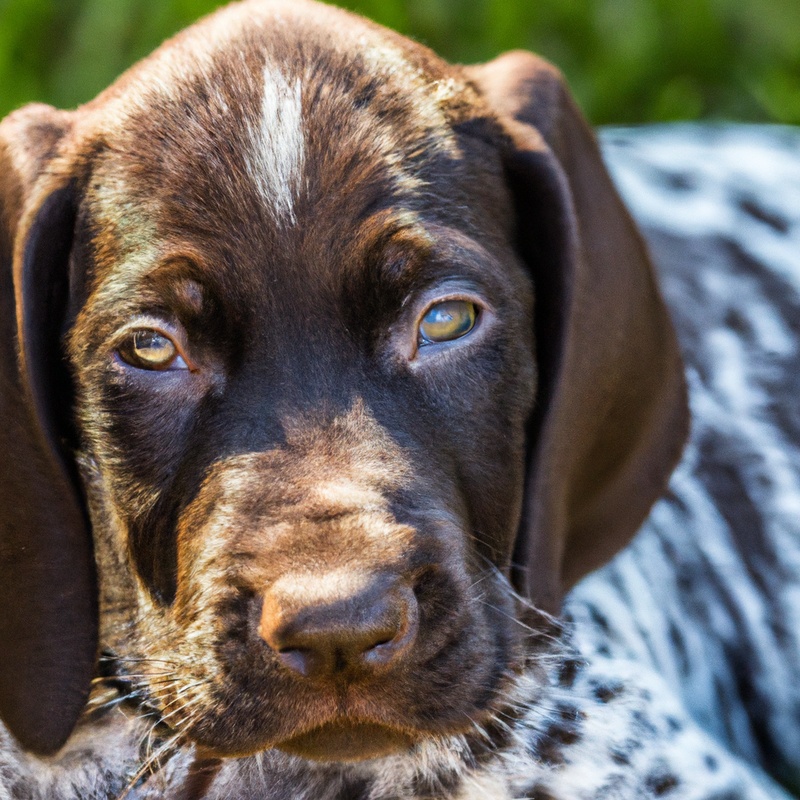
Are German Shorthaired Pointers Good with Other Dogs?
German Shorthaired Pointers and Same-Gender Dogs
German Shorthaired Pointers can be good with dogs of the same gender, but it really depends on their individual personalities and socialization. These dogs are generally sociable and friendly, but some may have a tendency to be dominant or territorial.
It’s important to introduce them properly and supervise their interactions.
If both dogs are well-socialized, they can form strong bonds and enjoy each other’s company. However, it’s always a good idea to introduce them in a neutral territory and monitor their behavior to ensure a positive and safe interaction.
Factors That May Influence Compatibility with Same-Gender Dogs
Factors That May Influence Compatibility with Same-Gender Dogs One important factor to consider is the age of the dogs. Puppies generally get along well with other puppies, regardless of gender.
However, as they mature, same-gender dogs may be more prone to displaying dominance behaviors and challenging each other for dominance.
Another factor is the socialization history of the dogs. Dogs that have been exposed to a variety of other dogs and had positive experiences are more likely to be compatible with same-gender dogs.
Lack of socialization or negative experiences can lead to aggression or fear-based behavior.
The individual personalities of the dogs also play a role. Some dogs are naturally more dominant or assertive, while others are more submissive.
Dogs with compatible personalities can have a better chance of getting along.
Lastly, it’s important to consider the overall living situation and resources available. Dogs that have enough space, toys, and attention are less likely to compete for resources and may have a higher chance of compatibility.
Introducing German Shorthaired Pointers to Same-Gender Dogs
Tips for Successful Introductions
When introducing German Shorthaired Pointers to dogs of the same gender, there are a few key tips to keep in mind to ensure a successful introduction. Here are some things you can do:
- Choose the right setting: Find a neutral territory where both dogs can feel comfortable and relaxed. This can help prevent territorial behavior and reduce tension.
- Take it slow: Gradually introduce the dogs to each other, starting with brief supervised interactions and gradually increasing their time together. This gradual approach allows them to get used to each other’s presence.
- Use positive reinforcement: Reward both dogs with treats and praise when they display friendly behavior towards each other. This helps to create positive associations and encourages good interactions.
- Supervise the interactions: Keep a close eye on the dogs during their initial meetings and intervene if necessary. This helps prevent any potential conflicts and ensures everyone’s safety.
Gradual Introduction Process for German Shorthaired Pointers
When it comes to introducing German Shorthaired Pointers to other dogs of the same gender, a gradual introduction process is crucial. Here’s a simple and effective way to go about it:
- First and foremost, ensure that both dogs are on a leash during the initial meetings. This allows you to have control and prevent any potential conflicts.
- Start the introduction in a neutral territory, such as a park or a fenced yard. This helps to minimize territorial behavior.
- Allow the dogs to sniff each other from a distance while keeping the leashes loose. Observe their body language for signs of comfort or tension.
- If both dogs seem relaxed, you can gradually decrease the distance between them, allowing them to interact more closely. Keep a close eye on their behavior and intervene if necessary.
- Gradually increase the duration and frequency of their interactions over time. This will give them a chance to get used to each other’s presence and build a positive association.
Managing German Shorthaired Pointers’ Interactions with Same-Gender Dogs
Signs of Positive Interaction
First and foremost, it’s important to recognize the signs of positive interaction between German Shorthaired Pointers and dogs of the same gender. These signs indicate that the dogs are getting along well and enjoying each other’s company.
Here are a few signs to look out for:
- Playfulness: When both dogs engage in playful behavior such as chasing, wrestling, or play-bowing, it’s a good sign that they are enjoying each other’s company.
- Relaxed body language: Watch for loose, wagging tails, relaxed ears, and a soft gaze. These are signs that both dogs are comfortable and at ease in each other’s presence.
- Sharing resources: If both dogs are willing to share toys, treats, and other resources without any signs of aggression or possessiveness, it shows a positive interaction between them.
- Calm greetings: A smooth and calm approach during initial greetings, without any signs of fear or aggression, is a positive indication that the dogs are getting along.
Signs of Potential Problems
Signs of Potential Problems Okay, let’s talk about signs that can indicate potential problems when it comes to managing German Shorthaired Pointers’ interactions with other dogs of the same gender. These signs can help you identify if there might be an issue brewing between your GSP and another dog of the same sex.
First and foremost, it’s important to pay close attention to body language.
Watch for signs of aggression or tension, such as stiff postures, raised hackles, and growling. These are clear indications that there may be a problem between the dogs.
Another sign to watch out for is excessive dominance or submission.
If one dog is constantly trying to dominate the other, or if one dog is constantly submitting and avoiding conflict, it may lead to ongoing issues between them. Keep an eye out for resource guarding behaviors as well.
This can include one dog becoming possessive over toys, food, or even their favorite spot on the couch.
Resource guarding can escalate into aggressive behavior, so it’s crucial to address it early on. Lastly, if you notice persistent and intense fighting or constant tension between your GSP and another same-gender dog, it’s a definite red flag.
Regular, aggressive confrontations are not healthy and could pose a serious risk.
Strategies for Managing Interactions Safely
When it comes to managing the interactions of German Shorthaired Pointers with dogs of the same gender, there are a few strategies you can implement to ensure safety and harmony.
- Early socialization: Start socializing your German Shorthaired Pointer with other dogs from a young age. This will help them develop good social skills and learn appropriate behaviors when interacting with their same-gender counterparts.
- Controlled introductions: When introducing your German Shorthaired Pointer to a new dog of the same gender, do so in a controlled and supervised environment. Use leashes and take it slow, allowing them to slowly acclimate and get to know each other.
- Positive reinforcement: Reward your German Shorthaired Pointer for calm and friendly behavior during interactions with other dogs of the same gender. Use treats, praise, and affection to reinforce positive experiences and encourage good behavior.
- Separate playtimes: If you have multiple German Shorthaired Pointers of the same gender, it may be beneficial to have separate playtimes to avoid any potential conflicts or competition.
Training and Behavioral Considerations for German Shorthaired Pointers
Training for Socialization and Good Behavior with Other Dogs
Training for socialization and good behavior with other dogs is essential for German Shorthaired Pointers. First and foremost, expose them to different dogs and environments from a young age.
This helps them become comfortable and confident around other dogs.
Regularly organize play dates or visit dog parks to provide opportunities for positive interactions. Additionally, teach them basic commands such as “sit,” “stay,” and “leave it” to establish control and prevent any potential issues.
Consistency and positive reinforcement are key when training your German Shorthaired Pointer for socialization and good behavior with other dogs.
Addressing Aggression or Behavioral Issues
Addressing aggression or behavioral issues in German Shorthaired Pointers is important for their overall well-being and the safety of those around them. One of the first steps is to understand the underlying cause of the aggression, which could range from fear or anxiety to resource guarding or territorial behavior.
Once identified, it’s crucial to work with a professional dog trainer or behaviorist who specializes in positive reinforcement techniques.
Through consistent training, socialization, and providing a structured environment, these issues can often be successfully addressed.
Seeking Professional Help and Support
Working with a Professional Dog Trainer or Behaviorist
Working with a professional dog trainer or behaviorist can be incredibly beneficial when it comes to addressing any behavioral issues with your German Shorthaired Pointer. These experts have the knowledge and experience to help you understand your dog’s behavior and develop effective strategies for training and socialization.
One of the great things about working with a professional is that they can assess your dog’s temperament and provide tailored advice based on their individual needs.
They can help you identify the root causes of any aggression or tension between your German Shorthaired Pointer and other dogs of the same gender, and guide you through the process of modifying that behavior. A professional dog trainer or behaviorist can also teach you how to properly socialize your German Shorthaired Pointer, allowing them to interact with other dogs in a controlled and positive manner.
This can be particularly important if your dog has had previous negative experiences or displays anxious or aggressive behavior towards other dogs.
By providing you with guidance, support, and practical training techniques, a professional can help you establish a clear hierarchy and communication system with your dog. They can teach you how to effectively communicate your expectations and reinforce positive behavior, which can be key in creating a harmonious environment for your German Shorthaired Pointer and other dogs.
Joining Supportive Communities and Groups
Joining supportive communities and groups can be incredibly beneficial when it comes to navigating the world of dogs and addressing specific concerns you may have. These communities provide a valuable opportunity to connect with like-minded individuals who share similar experiences and challenges.
By joining these communities, you can gain access to a wealth of knowledge and advice from people who have been through similar situations.
This can help you feel supported, understood, and less alone in your dog-related journey. Additionally, these communities often organize meet-ups, training sessions, and events where you can socialize and interact with other dog owners and their furry companions.
This can be a great way to expose your dog to different dogs of the same gender in a controlled and supervised environment.
Furthermore, many communities and groups have dedicated trainers, behaviorists, and experts who can offer guidance and support. They can provide personalized advice and strategies to help you navigate any challenges you may encounter with your German Shorthaired Pointer or any other breed.
Final Verdict
German Shorthaired Pointers can be good with other dogs of the same gender, but it depends on various factors such as proper socialization, individual temperament, and careful introductions. While these dogs may have a tendency for dominance, with early and continued socialization, positive interactions can be fostered.
Training and addressing any behavioral issues is crucial in ensuring peaceful coexistence.
Remember, seeking professional help and support from experienced trainers or behaviorists can be invaluable in navigating the challenges that may arise. With the right approach, German Shorthaired Pointers can indeed live harmoniously with dogs of the same gender.
Trust in the guidance provided here, and foster a safe and happy environment for both your German Shorthaired Pointer and their canine companions.

